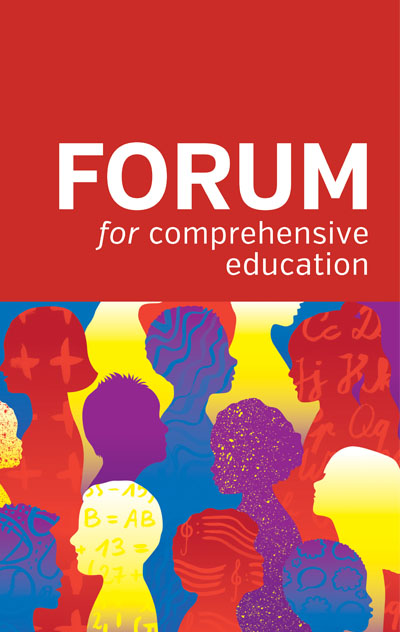
Editorial
FORUM - Print ISSN 1474-7685 - Online ISSN 2047-7171
Volume 46 Number 2 (2004)
Editorial
Annabelle Dixon pages 45‑45
DOI: 10.2304/forum.2004.46.2.1
Abstract
‘You’re playing with words!’ (David Miliband, Interview, Radio 4, July 9, 2004
Well, at least it can be said that Miliband and his masters know the name of the game, although there’s evidently an assumption that only one side should be allowed to play it.
It has not gone un-noticed that New Labour’s five year plan for education relies heavily on that category of words, the abstract noun. One of the rules of the game is that you should take otherwise creditworthy words such as ‘choice’, ‘freedom’, ‘excellence’ ‘opportunity’ etc. etc. and devalue their coinage by certain calculated moves so that they can all be scooped up successfully when they arrive in the so-called ‘Community Chest’ and be made to serve your own ends.
By the time the words have got to the point where they only bear a passing resemblance to their original meaning, the fun can begin. All that is neeed is a gullible public for whom the words had, in their original form, certain attraction and persuade them that these indeed are what they’re going to be given and examples will be rapidly and unceasingly passed before them so that it can be seen what these words might mean in practice. For instance, Sheila Dainton, writing in this issue of FORUM, examines the contemporary meaninglessness of so-called ‘personalised learning’. The more thoughtful will come to see that some words they thought they understood just demonstrate they have been labouring under a delusion, for example ‘comprehensive’ actually means ‘academy’, ‘non-selection’ actually means ‘selection’, ‘choice’ actually means ‘restriction’ and so on.
For the game that is being played is the one dangerous to all and any civilisation; take the words that represent its deeper structures, words that have taken long experience to have meaning within the society and trivialise them for passing political ends by giving them an entirely surface structure. This was the dichotomy Noam Chomsky applied to his analysis of language and grammar but it can easily be applied, metaphorically, to many other situations and circumstances.
A telling example, and one that bears no little relevance to the above ‘game’ is the recent report (Times Educational Supplement, July 4 2004) by educational researchers at the University of Warwick. They found that children given the choice to use the internet for research into the history of bicycles did so with great gusto although there was a curious and disappointing similarity to their eventual work. Asked about the topic a few weeks later it seemed the children ‘could remember little of what they had learnt’(the assumption that they had ever learned anything in the first place was seemingly not queried but it appeared an indisputable fact that they had enjoyed using the internet). A machine that gives an apparent sense of control and a contrived liveliness is naturally going to have an appeal. A publicity machine that revs up the attraction and appeal of new ‘educational choices’ is going to have the same effect and the same shallowness is going to be observed – in one case the children didn’t learn anything and in the other case it’s fervently hoped the electorate won’t either.
To cite this article
Annabelle Dixon (2004) Editorial, FORUM, 46(2), 45-45 . https://doi.org/10.2304/forum.2004.46.2.1
